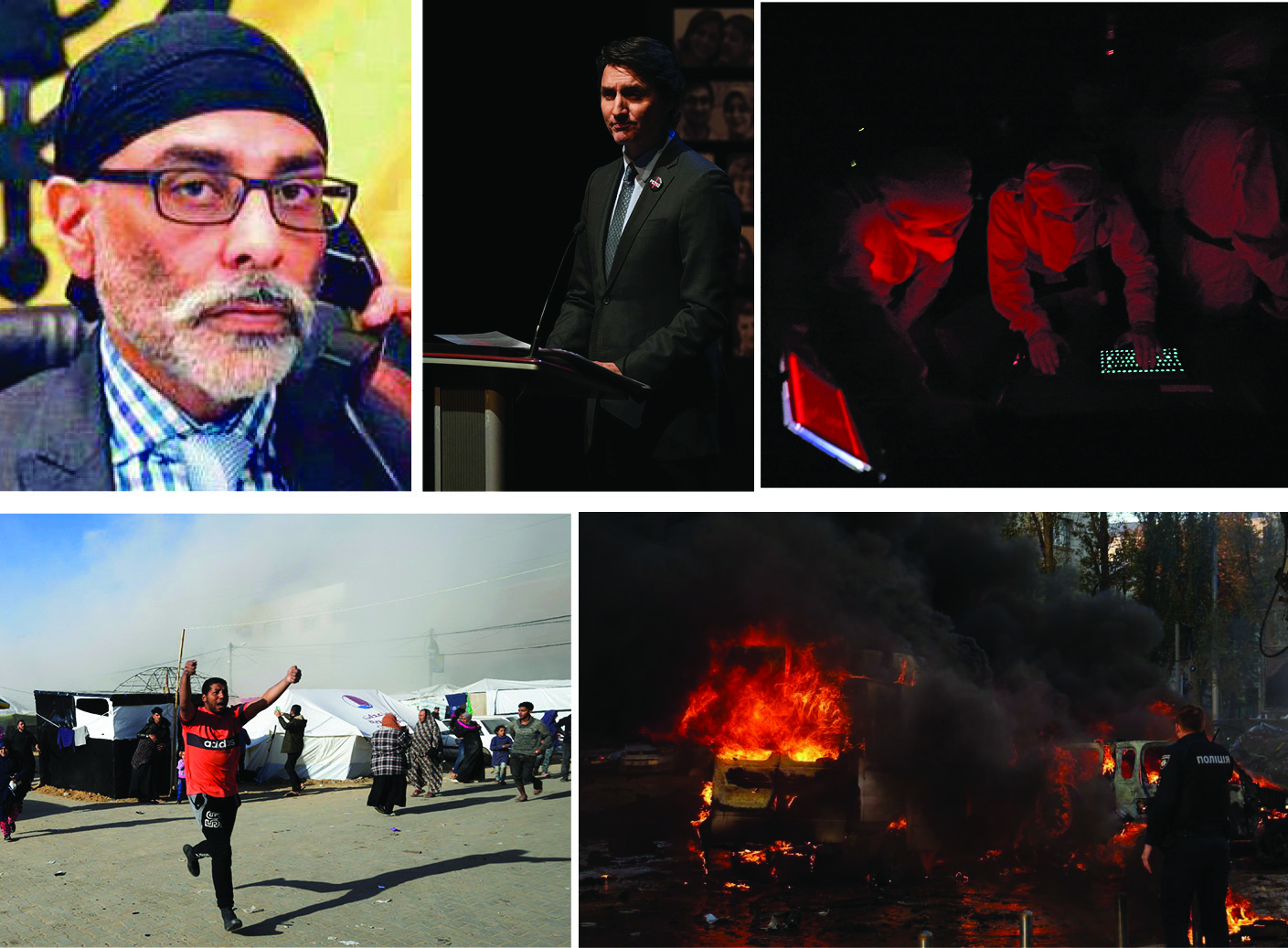Echoes of chaos
Since the alarming trend of dastardly activities witnessed in 2023 have not yet subsided, 2024 may see more pronounced turbulence, fanaticism, and military conflagrations engulfing wider areas

As the last year concluded on December 31, like on previous occasions, it was time to evaluate the year, especially from a security point of view. Sadly, the past year saw a slew of bloody activities, whether it was the ongoing Russia-Ukraine conflict, the terror attacks by French nationals of Algerian origin in France, or North African-origin terrorists wreaking havoc in Rotterdam and other parts of Europe. The trend remained the same.
Furthermore, most significant was the bloodbath emanating from the Israel–Hamas armed confrontation that led to far-reaching geopolitical implications not only in the Middle East but also in various parts of the globe, resonating with ample apprehensions and uncertainty.
By the time this opinion piece hits the press, the Israeli military operations in Gaza must have already manifested results of enormous proportions, leaving behind a trail of ominous signs with the potential for more belligerence and unpredictability, leading to further loss of lives and attrition.
Significantly, the immediate fallout of the ongoing conflict has given rise to the possibilities of a likely "unity" among every Islamic nation nurturing acrimony towards Israel and the Jews. Similarly, Iran, Qatar, and other like-minded nations have joined hands to take on Israel through multiple measures, leading to an escalation of military adventurism and further destruction. With the UN looking like a hapless spectator and a spineless watchdog, things in the not-so-distant future look dim. With no signs of any let-up in the conflicts and no sincere efforts by any world power, peace also looks remote. This apart, chances of religious indoctrination and subsequent religion-linked extremism seem to be on the anvil, commencing from the previous year and now spilling over into the new year.
Shifting from the Middle East to other parts of the world, which witnessed bloodshed, though not necessarily on a large scale, geopolitical equations and the prevailing chemistry have been dismal. Ironically, Canadian Prime Minister Justin Trudeau's statement on the floor of the Parliament a few months ago accusing India of the killing of Sikh separatist Hardeep Singh Nijjar (June 18) in Surrey, British Columbia, and the unnecessary row of alleged plans to kill Gurpatwant Singh Pannun, the Sikh separatist, made things murkier. Matters now look more complicated, and as of today, beyond repair. The US, Canada, and other countries of the conglomerate need to address the issue without any further delay so that the bilateral and multilateral ties between the concerned nations have prospects of redemption.
It is equally lamentable that a Sikh separatist leader (Gurpatwant Singh Pannun) who is wanted as a terrorist in India is allowed to issue threats for attacks in the Indian Parliament and Indian Aircraft. How would Gurpatwant Singh Pannun's protectors or handlers feel if the threat to his country of stay emanates from any other foreign territory to violently target its vital infrastructure as a quid pro quo?
Now, judging by the happenings of 2023, the new year 2024 also does not show any signs of promise in terms of peace and tranquillity. For example, dwelling on the terror attacks in Pakistan, we notice a spate of terror attacks beginning from January last year happening at regular intervals more as a pattern, particularly taking the toll of security and intelligence officials in various provinces almost throughout the preceding year. More disturbingly, the casualties occurred inside the places of worship, and the perpetrators of the attacks were from Pakistan only, though operating from Afghan soil, more specifically by the Tehreek-e-Taliban Pakistan (TTP). Crucially, the trend continues. Here, it is difficult to predict if the new year will see the same ferocity of attacks by the same forces unleashing fear and terror. Most security experts, however, feel that the fury of violence is likely to intensify.
Furthermore, it is equally pertinent to point out that Pakistan and India are poised for general elections this year, and Bangladesh has recently concluded its 12th National Assembly poll. In a world fraught with communal frenzy and a propensity for violent disturbances, the happenings of last year, as elucidated above, can see a repeat of occurrences, perhaps with harsher consequences this time, as the religious tolerance level is plummeting very sharply. Recent election results in Maldives also prove its potential for changing geopolitics. Equilibrium with Maldives is rapidly drifting towards the China–Turkey axis, emboldening these countries to try and alienate India, which is now emerging as an economic and military powerhouse.
It is also germane to highlight that maritime security is now visibly under threat, as demonstrated by the Houthi rebels in Yemen resorting to frequent drone attacks on commercial sea vessels and also taking recourse to sea piracy, reminiscent of the last decade when sea pirates posed a lethal threat to maritime security, especially from Al Shabab of Somalia. The Red Sea, Gulf of Aden, and Arabian Sea are particularly vulnerable today, and unless the trend is militarily and diplomatically curbed, the threat might proliferate in other territorial waters, exposing them to drone attacks.
Against the backdrop of these disturbing developments of 2023, 2024, in all likelihood, is likely to see more pronounced turbulence, fanaticism, military conflagrations engulfing more areas for military conflict and hatred. Therefore, pacifists the world over are legitimately pessimistic for a trouble-free 2024. Fingers crossed!
The writer is a retired IPS officer, Adviser NatStrat, and a former National Security Advisor in Mauritius. Views expressed are personal



